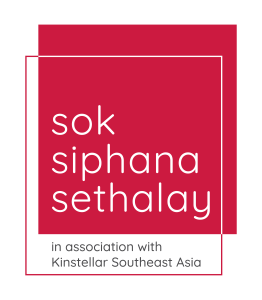Legalisation of Casinos under the new Gambling Law 2019
The gambling landscape in Myanmar has finally been legalised with the introduction of the Gambling Law 2019 (Pyidaungsu Hluttaw Law No.13/2019) (“the Law”). Illegal gambling is more harmful than legal wagering and the legalisation of casinos will help in protecting citizens against any mistreatment or cheating, provide revenue to the country as well as creates jobs for the locals and promotes a safer environment for people to gamble.
Prior to the enactment of the Law, gambling activities in Myanmar were strictly prohibited under the Gambling Law 1986 (“GL 1986”). In 2013, the Myanmar Investment Commission (“MIC”) allowed for casinos to be operated with the recommendation of the Ministry of Hotels and Tourism as well as approval from the Union Government. However casinos was only allowed in hotels located in a restricted area in accordance with Ministry of Home Affairs’ laws, regulations and procedures. In addition to that, only foreigners were allowed to enter the casino. In the following year, casino business was not included in the MIC’s notification and in view of that, there was no casino business allowed within the period of 2013 to 2019.
The gambling bill was submitted by the Public Affairs Management Committee and approved by Pyithu Hluttaw in 2018. In May 2019 the Law was passed and repeals the GL1986. The aim of the law is to have a modernised gambling law while at the same time boosting tax revenues and tourism.
Under the Law, “gambling” is defined as a game of chance and irrespective of whether a bookmaker’s fee is paid, gambling by taking part in games requiring skills for money, for property with a monetary value for property agreed to be exchanged for a certain amount of money while “casino” is defined as a place or building which only allows foreigners to gamble and registered with the permission of the Union Government. While the Law allows for the establishment and opening of casinos with specified terms (section 23) it can only do so with the permission of the Union Government.
Simultaneously, the Law also provides for the definition of “lottery” to mean the Aung Bar Lay Lottery administered by the Internal Revenue Department, Ministry of Planning and Finance of the Union Government. Previously, the government had allowed investment in E-lottery business in form of joint venture with the Government with the recommendation of Ministry of Planning and Finance. However, under the Law, a lottery may only be operated by the Internal Revenue Department under the Ministry of Planning and Finance as appointed by the Union Government.
Violations under the Law can lead to penalties which stretches from terms of imprisonment ranging from one month to five years and prescribed fines of up to MMK 1 million. The Law also provides the courts with the ability to offer and grant rewards to those who inform them on any gambling. The reward is capped at 10 % for informers and 20 % for those who are involved in the arrest of the illegal gambling from the money confiscated as public property or from the sale on the objects confiscated as public property.
With the passing of the Law, casinos will now be allowed to operate albeit under specified terms and conditions imposed by the Government. This will open the doors to both foreign investors and tourists and create more employment opportunities for Myanmar citizens. Nonetheless further notifications, rules or directives will need to be issued so as to be clear on what forms of investment are allowed for casino business because in the Law it is unclear whether Myanmar citizens would be able to invest and operate a “casino” business or whether this would be restricted to only foreign investors. Moreover, the permissible or target areas to operate the casino business also need to be clarified. Another important clarification needed will be on the repatriation of the money. This is as currently, the process of sending money out from Myanmar is quite difficult and supporting documents need to be provided. The Law does not mention anything on the repatriation of the money, especially as gambling is exclusively for foreigners. Further notifications or directive is needed to clarify this glaring issue.
By allowing casinos to operate legally in the country and setting rules and regulations to for a more systematic operation, it will help to improve government tax collection and action can be taken on illegal casinos operating at the border.
If you have any questions or require any additional information, please contact Thuzar Tin or the ZICO Law Myanmar partner you usually deal with.
This alert is for general information only and is not a substitute for legal advice.



